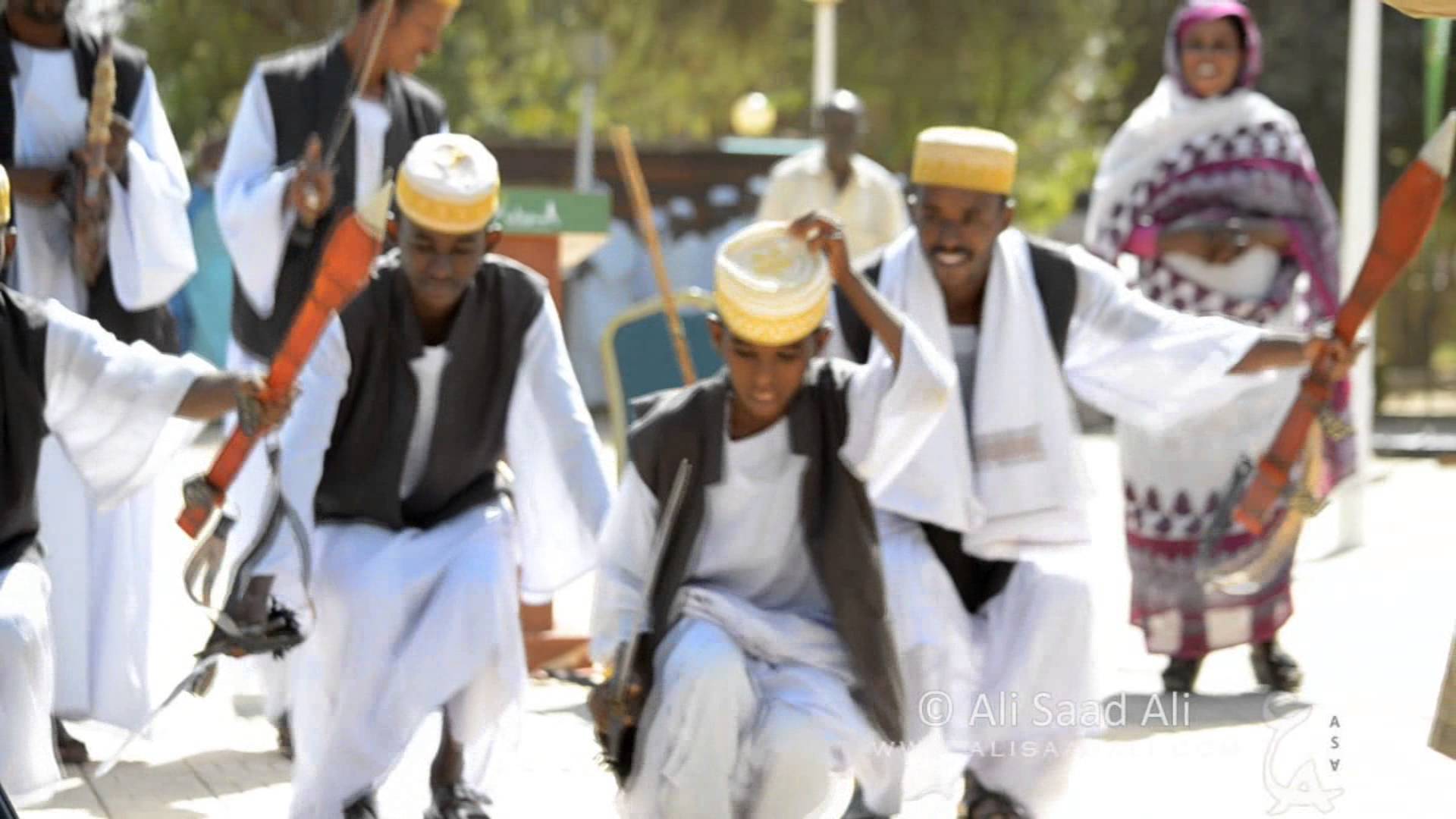At Andariya, we care about music because it offers many dimensions in reflecting the ideas, concepts and variations in history. We met Dr. Ali Ibrahim Al Daw who works at the Institute for African Studies at the University of Khartoum. Dr. Ali was born in 1948 and began his studies at the faculty of architecture at the University of Khartoum and then transferred to study accounting, he graduated with a bachelor in Music in conjunction with his accounting degree. He then pursued a Master’s degree in Folklore from the University of Khartoum and began his work until today at the Institute. Dr. Al Daw published 8 books, 42 articles and attended about 40 international and local conferences, all of them about Music.
Andariya: What differentiates African music from other types in terms of style and scale?
Dr. Ali Al Daw: African music is unique on two levels: from a structural and a cultural point. To understand it we have to put it in context, as it enters into many aspects of African life like hunting, worship, asceticism, and entertainment. Music is often associated with other purposes; like some African tribes dance to music when a member passes away; it’s not an expression of grief but confronting death. In such a ritual they pledge that next year they will replace their lost one by a hundred of new children.
The functionality of African music does not require specific musical instruments. Everything that makes a sound is musical, such as: drums, bells and even oral sounds.
It also does not require that sound should be beautiful, so anyone can sing as opposed to other cultures that focus on the quality of the singer’s voice.
Another characteristic is being visual; African music combines rhythms and sounds with the body movements that come from gestures and hitting the ground with bells and even choreographed dances. This is why African music is often referred to as “physical music”, because it’s connected to the physical activity that goes with the rhythm.
African music has a high status for Africans almost close to the status of religions, and that importance is what science later learned. For example; mating between animals is done through phonetic rituals, which include tones and sounds emitted by animals that activate a certain area in the cortex and without it they can never mate.
For humans, music can take them to a state of ecstasy in which they lose their abilities to control their actions. We can observe an old pious man who begins to sway to chanting in a way that is incompatible with his age and dignity, simple because music can lead him to lose full awareness of his actions.
In wars, music helps in making soldiers behave contrary to the instinct of survival and thus encourage them go to their death with their own feet.

Image Credit: Ali Saad Ali
Andariya: Do you consider the impulsiveness of the African music as an added value or otherwise?
Dr. Ali Al Daw: Music is created as a part of a culture without documentation, and then science comes to study it and extract its basic patterns. So it’s not possible that oral transmission lessened its value, because there are a lot of matters that were transferred to us by oral traditions. An example is the science of religion and the Hadith in the Islam, which were transmitted to us at first from men, and this did not make it less valuable. There are many ways for verifying the validity of oral transmission, hearing is like blogging and writing, it’s a means of transmitting knowledge, as we cannot see it as a defect or an advantage.
The scholars of folk music objected to European ways of codifying non-European music during the industrial revolution when musical instruments were made and music was then recorded according to the rules of those instruments. African music was documented in s superficial way that is not familiar with all its aspects due to the way of its documentation, which left it incomplete without the dances and other body expressions that accompany the music.
Andariya: So how do you suggest we academically study African music if documentation hasn’t been accurate?
Dr. Ali Al Daw: We can record and study them using western musical notes, but with the addition of symbols to solidify what the musical note could not convey (indicating high or low impacts of each note).
If African music is written without any consideration to such differences, it will undoubtedly lead to its distortion or reflection of a different picture of reality. This led to the division of people’s music from the rest of the branches of music and it has been taught as an independent specialty to document the music of the people as a culture rather than as a profession.
Andariya: What is the role music plays in the formation of people’s identities?
Dr. Ali Al Daw: The context of music is a cultural context in which we can pass agendas that no other matter can pass. In Sudan we have the tradition of “Bridal Dancing” to the tune of certain songs in front of a group of women to prove the pureness of the bridge and the purpose of this activity could not have been accomplished without music and dancing. Music is an integral part of any tradition or religious ritual performed by Africans tribes.
Andariya: Let’s delve into Sudanese music in particular; is it closer to African or Arab music?
Dr. Ali Al Daw: Sudan is unique in many aspects: politics, culture, beliefs and others. I’m not implying that Sudan is the best but it’s not like other countries because of its distinguished historical and geographical factors. There are many features that formed the Sudanese personality. Sudanese characteristics are founded upon special kinds of behavior; generosity, kindness, love of others and solidarity. This also applies to our music; it is similar to us although it is influenced by both African and Arab music. What differentiate us from other Africans is that our dance constrained by our timid social and cultural constraints, so you find it accompanying certain circumstances like Sufi rings and special occasions.
Andariya: What do you think of the attempts to develop Sudanese music by introducing new instruments and rhythms?
Dr. Ali Al Daw: First, it is not possible to develop music but to enhance it, change the melody for instance, to tell a story. Attempts to add new musical instruments and different rhythms are nothing but distortions of the music that expresses our culture and identity. Practicing music as a professional activity requires us to commit to certain foundations that impose a basic framework of acceptance of certain issues upon which music is established.
Andariya: What is the impact of colonialism and migrations on Sudanese music?
Dr. Ali Al Daw: Colonization had a great impact on the professional singing style of the urban city environment, which was transferred to us by Turks. Many Turkish colonizers settled in Sai island and became familiar with the local people and thus influenced the Sudanese music by introducing Oud and Eastern music. Most Sudanese musicians after that period (the post-colonial) like El-Kashif, Wardi, and Khalil Farah were from a Turkish origin.
This does not mean that the Sudanese people have not known and practiced music for a long time ago, but they did so without specific instruments and with no attention to the quality of sound. Music was a functional cultural tenant, not mere entertainment.
